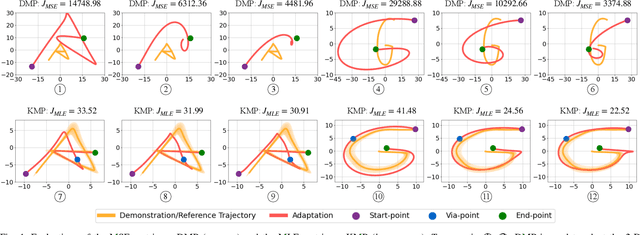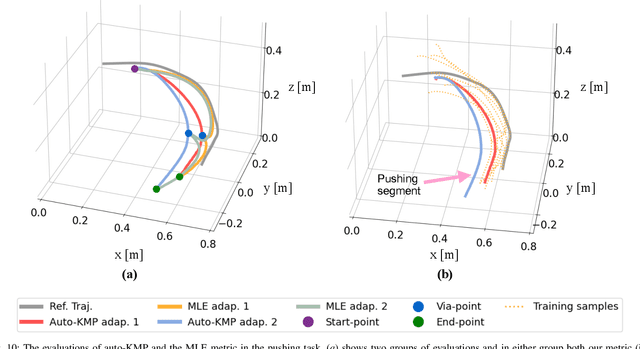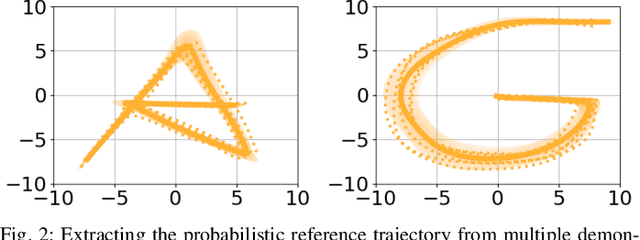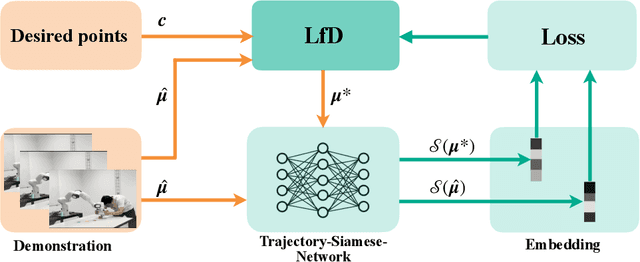Shaokang Wu
One-Shot Robust Imitation Learning for Long-Horizon Visuomotor Tasks from Unsegmented Demonstrations
Oct 02, 2024Abstract:In contrast to single-skill tasks, long-horizon tasks play a crucial role in our daily life, e.g., a pouring task requires a proper concatenation of reaching, grasping and pouring subtasks. As an efficient solution for transferring human skills to robots, imitation learning has achieved great progress over the last two decades. However, when learning long-horizon visuomotor skills, imitation learning often demands a large amount of semantically segmented demonstrations. Moreover, the performance of imitation learning could be susceptible to external perturbation and visual occlusion. In this paper, we exploit dynamical movement primitives and meta-learning to provide a new framework for imitation learning, called Meta-Imitation Learning with Adaptive Dynamical Primitives (MiLa). MiLa allows for learning unsegmented long-horizon demonstrations and adapting to unseen tasks with a single demonstration. MiLa can also resist external disturbances and visual occlusion during task execution. Real-world robotic experiments demonstrate the superiority of MiLa, irrespective of visual occlusion and random perturbations on robots.
Auto-LfD: Towards Closing the Loop for Learning from Demonstrations
Oct 15, 2023



Abstract:Over the past few years, there have been numerous works towards advancing the generalization capability of robots, among which learning from demonstrations (LfD) has drawn much attention by virtue of its user-friendly and data-efficient nature. While many LfD solutions have been reported, a key question has not been properly addressed: how can we evaluate the generalization performance of LfD? For instance, when a robot draws a letter that needs to pass through new desired points, how does it ensure the new trajectory maintains a similar shape to the demonstration? This question becomes more relevant when a new task is significantly far from the demonstrated region. To tackle this issue, a user often resorts to manual tuning of the hyperparameters of an LfD approach until a satisfactory trajectory is attained. In this paper, we aim to provide closed-loop evaluative feedback for LfD and optimize LfD in an automatic fashion. Specifically, we consider dynamical movement primitives (DMP) and kernelized movement primitives (KMP) as examples and develop a generic optimization framework capable of measuring the generalization performance of DMP and KMP and auto-optimizing their hyperparameters without any human inputs. Evaluations including a peg-in-hole task and a pushing task on a real robot evidence the applicability of our framework.
 Add to Chrome
Add to Chrome Add to Firefox
Add to Firefox Add to Edge
Add to Edge